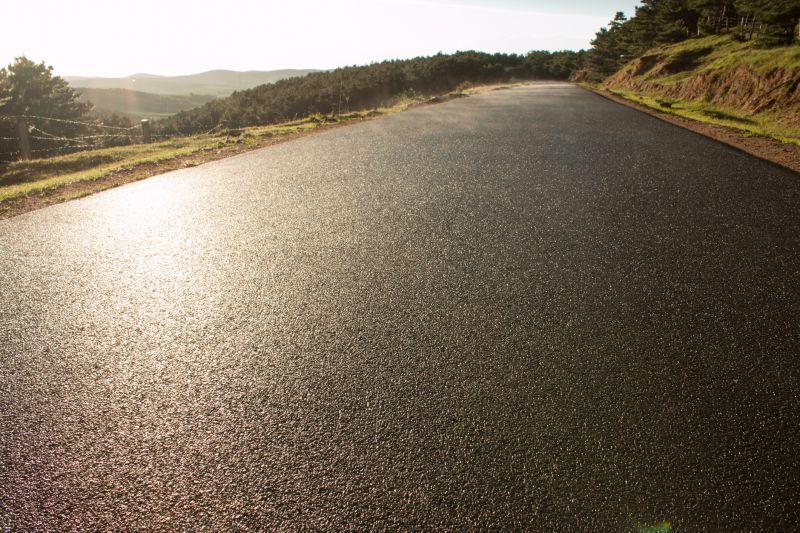Top-Rated Tools For Asphalt Service And Upkeep
Select from high-quality products designed to simplify asphalt repair, sealing, and surface management tasks.
 Maintaining asphalt surfaces is essential for ensuring safety, durability, and visual appeal in various settings such as parking lots, driveways, and roadways. Proper asphalt service involves a range of products designed to address different needs, from sealing cracks to resurfacing entire areas. Selecting the right products can help extend the lifespan of asphalt surfaces and reduce long-term maintenance costs. Whether you are a professional contractor or a property owner managing minor repairs, understanding the available options is key to making informed decisions.
Maintaining asphalt surfaces is essential for ensuring safety, durability, and visual appeal in various settings such as parking lots, driveways, and roadways. Proper asphalt service involves a range of products designed to address different needs, from sealing cracks to resurfacing entire areas. Selecting the right products can help extend the lifespan of asphalt surfaces and reduce long-term maintenance costs. Whether you are a professional contractor or a property owner managing minor repairs, understanding the available options is key to making informed decisions.
Top Overall Option
Premium Asphalt Crack Filler
This versatile crack filler is designed to effectively seal cracks in asphalt surfaces, helping to prevent water intrusion and further deterioration. Its ease of application makes it suitable for both professional contractors and DIY enthusiasts. Formulated for durability, it adheres well to existing asphalt and remains flexible to accommodate temperature fluctuations, making it a reliable choice for maintaining asphalt integrity over time.
Types of Products For Asphalt Service
Asphalt Sealant
Used to protect and extend the life of asphalt surfaces by sealing small cracks and surface imperfections.
Crack Filler
Designed to fill and seal larger cracks, preventing water infiltration and further damage.
Pothole Repair Mix
A specialized compound for filling and repairing potholes efficiently.
Asphalt Patch
Suitable for resurfacing localized damaged areas with a durable, quick-setting material.
Surface Coating
Provides a protective layer to improve surface appearance and durability.
Emulsified Asphalt
Used as a binder or for cold patch repairs, offering flexibility and ease of application.
Hot Mix Asphalt
A traditional paving material used for large-scale resurfacing projects.
Asphalt Primer
Prepares surfaces for sealing or bonding new asphalt layers.
Line Marking Paint
Applied for marking parking spaces, lanes, and other surface indicators.
Seal Coat
A liquid coating that rejuvenates the surface and provides additional protection.
Infrared Asphalt Repair Equipment
Tools used to heat and blend existing asphalt for seamless repairs.
Asphalt Milling Equipment
Machines used to remove damaged surface layers before resurfacing.
Asphalt Rakes and Hand Tools
Essential for spreading and leveling patching materials during repairs.
Traffic Marking Tape
Temporary or permanent surface markings for traffic control.
Sealant Applicators
Tools designed to apply sealants evenly and efficiently.
Popular Choices
A convenient, ready-to-use repair material suitable for quick pothole fixes.
Widely used for sealing cracks to prevent water damage and debris intrusion.
Commonly used for surface treatments and as a binder in patching.
Popular for protecting residential driveways from wear and weathering.
Preferred for durable repairs in high-traffic areas.
Ensures proper adhesion of sealants and patches by cleaning surfaces thoroughly.
Essential for marking parking lots and roadways clearly.
Efficient for seamless patching and resurfacing of damaged areas.
Used for removing deteriorated surface layers before repairs.
Designed for quick and effective pothole repairs.
Helps in applying sealants evenly and precisely.
Ideal for filling cracks that expand and contract with temperature changes.
Provides a fresh surface finish and additional protection.
Necessary for precise cuts during patching or resurfacing.
Used to smooth and level patching materials for a seamless finish.
Asphalt maintenance products vary widely, including sealants, patching compounds, crack fillers, and surface coatings. Each product type serves a specific purpose, whether to prevent water infiltration, restore surface integrity, or improve traction. Quality and compatibility with existing asphalt are important considerations to ensure effective application and longevity of repairs. Proper preparation, application techniques, and product selection are crucial steps in achieving optimal results.
When choosing asphalt service products, it is also important to consider the climate and usage patterns of the area. Products designed for high-traffic zones or extreme weather conditions may offer better performance in certain environments. Additionally, ease of use and drying time can influence project timelines and labor costs. Investing in the right products and following manufacturer instructions can lead to more durable repairs and a safer, more attractive surface.
In Charlotte, North Carolina, where weather fluctuations are common, selecting versatile asphalt products that can withstand seasonal changes is especially relevant. Regular maintenance with appropriate products can help preserve the condition of asphalt surfaces, preventing minor issues from escalating into costly repairs. Overall, understanding the range of available products and their specific applications empowers property owners and contractors to maintain asphalt surfaces effectively and efficiently.
Key Buying Considerations
- Type of asphalt repair needed (crack sealing, pothole filling, resurfacing).
- Compatibility of the product with existing asphalt surface.
- Climate conditions and temperature ranges in Charlotte, NC.
- Ease of application and required tools or equipment.
- Drying and curing times to fit project schedules.
- Durability and flexibility of the repair material.
- Coverage area and quantity needed for the project.
- Surface preparation requirements before application.
- Protection against water infiltration and weathering.
- Safety features and user instructions for application.
- Cost-effectiveness relative to project size and scope.
- Availability of technical support or guidance from suppliers.
- Environmental considerations, if any, related to product use.
- Long-term maintenance needs and product longevity.
- Compatibility with traffic flow and safety markings.
